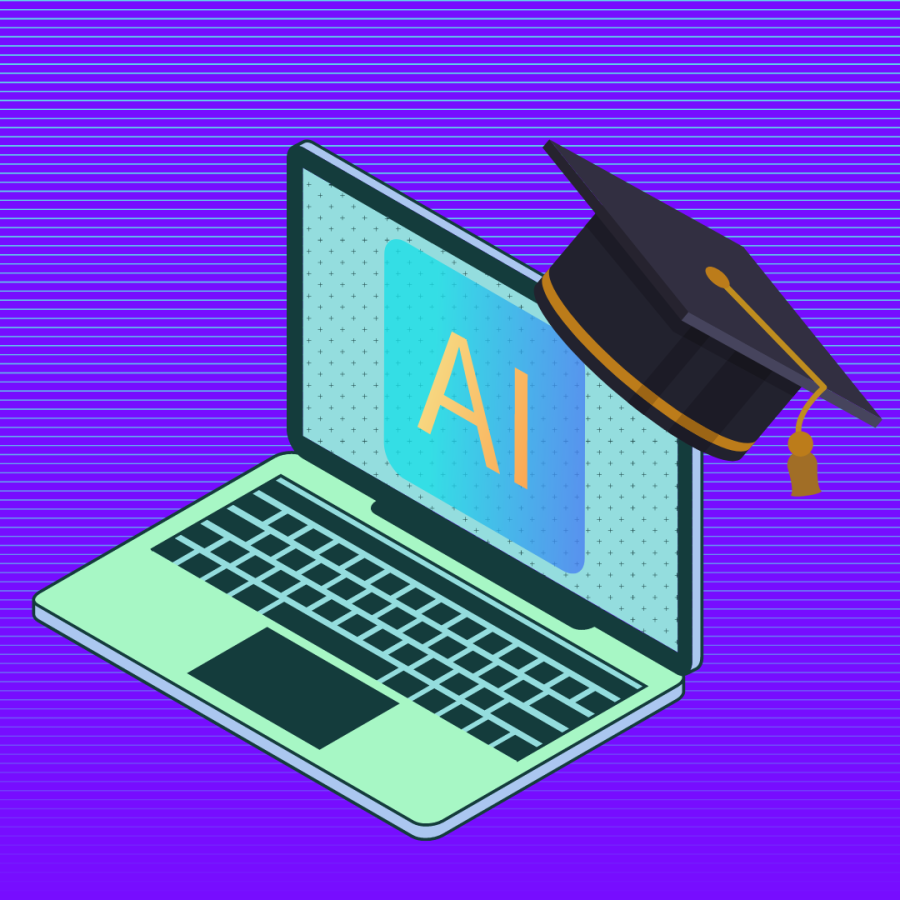The future of artificial intelligence
February 20, 2023
Artificial intelligence is a technology created to simulate human intelligence while being entirely processed by machines. The term has grown increasingly popular with the rise of facial recognition, AI-generated art and recommendation algorithms.
The University of Texas at Austin recently announced they are to offer a large-scale, low-cost online Master of Science program in artificial intelligence, the first large-scale degree program of its kind.
Tuition is intended to be affordable, at $10,000, and the program is heavily inspired by the Georgia Institute of Technology, the first leading computer science school to start a large-scale, low-cost online master’s degree.
Students will have access to training through the program edX, which prepares students for the career opportunities possible with artificial intelligence, including engineering, research and product management.
As tech giants work to invest billions in the ever-growing field, the establishment of this program is set to further expand the AI workforce in the U.S.
Dr. Yi (Cathy) Liu, a GC computer science professor, explains the reasons for the implementation of the program and how artificial intelligence programs are impactful.
“We see some huge demand, every kind of industry, trying to use A.I. to improve productivity in management, and at the same time, reduce the human costs,” Liu said.
With tech companies laying off their workers in favor of artificial intelligence, other programs worry that their importance may become obsolete.
“Many jobs actually can be replaced by machines because machines can work seven days a week, you know, 24 hours a day, so that’s very difficult to pick humans,” Liu said.
Many corporations prefer AI due to the lower cost and effectiveness in comparison to human resources.
“I think the idea is not too bad,” Liu said. “As a human being, many jobs contain lots of tedious repetition — jobs that can be replaced by a machine — and then, that gives you some spaces for the human to do more, like a creative, human productive, productive job.”
Although the job market is likely to be affected, many worry about the other potential harms presented by artificial intelligence.
“The first rule for every machine is not to do things to hurt a human, but as a machine, they try to implement their goal, so they probably don’t care about others,” Liu said. “We’re trying to teach a machine to be ethical.”
The influence of AI leads to a shift from general computer science and tech backgrounds once there is a larger breakthrough within the field in the future.
GC students discuss their opinions on the growth and future of artificial intelligence.
“I think there’s some really good parts to it,” said Jasmine Harrison, a junior public health and French major. “I know there’s a K-pop group that’s AI that’s really interesting to look at. It can also be kind of scary because there’s a lot of positions that people have that can be replaced by robots and AI. It’s a little weary.”
Rachel Kerger, a second-year creative writing MFA student, illustrated how artificial intelligence could affect her career.
“We can distribute books so much better because of artificial intelligence, but I do know that there’s this new idea that artificial intelligence is going to start crafting its own stories,” Kerger said. “I think it’s kind of a double edged sword.”




